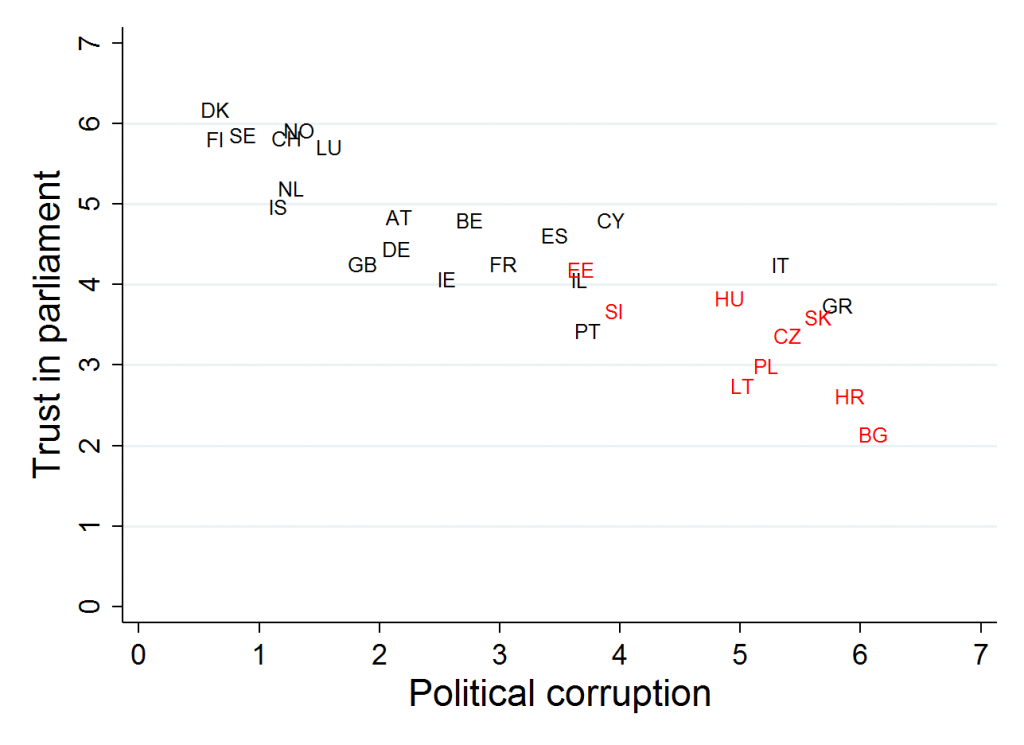PETER SÖDERLUND
Political corruption has convincingly been shown to corrode political trust. Corruption goes against the fundamental tenets of democracy such as honesty, impartiality, openness, and accountability. If the political authorities and representatives do not conform to the normative expectations of the public, they will not be considered as trustworthy and acting in the public interest.
The figure below shows how trust in the national parliament varies according to political corruption. Using data from the European Social Survey (2002–2015), mean scores for trust in 29 countries are plotted on the vertical axis. Respondents were asked to report how much they trust in their country’s parliament on a 0 to 10 scale. Political corruption at the country level is based on Transparency International’s Corruption Perceptions Index (CPI). The index measures perceptions of corruption (mainly based on expert surveys) in the public sector in each country. The index is reverse coded so that 0 represent minimum corruption and 10 maximum corruption.
There is an evident correlation indicating that trust in parliament decreases with higher political corruption. Countries in Western Europe are in black, while countries in Eastern and Central Europe are in red. In the upper left corner, political corruption is low and trust in the country’s parliament is high. Here we find Denmark, Finland, Sweden, Norway, and Switzerland. In the bottom right corner, the two countries with the highest level of corruption and lowest level of political trust are Croatia and Bulgaria.

There is of course more to it than meets the eye. What deserves further research is how other variables are related to both corruption and political trust. For example, the design of the electoral system, macroeconomic performance, and social trust are likely related to political corruption. The question is therefore to what extent political corruption has an independent effect on political trust.
Peter Söderlund is Academy Research Fellow of the Academy of Finland and working in the Social Science Research Institute at Åbo Akademi University.


Comments